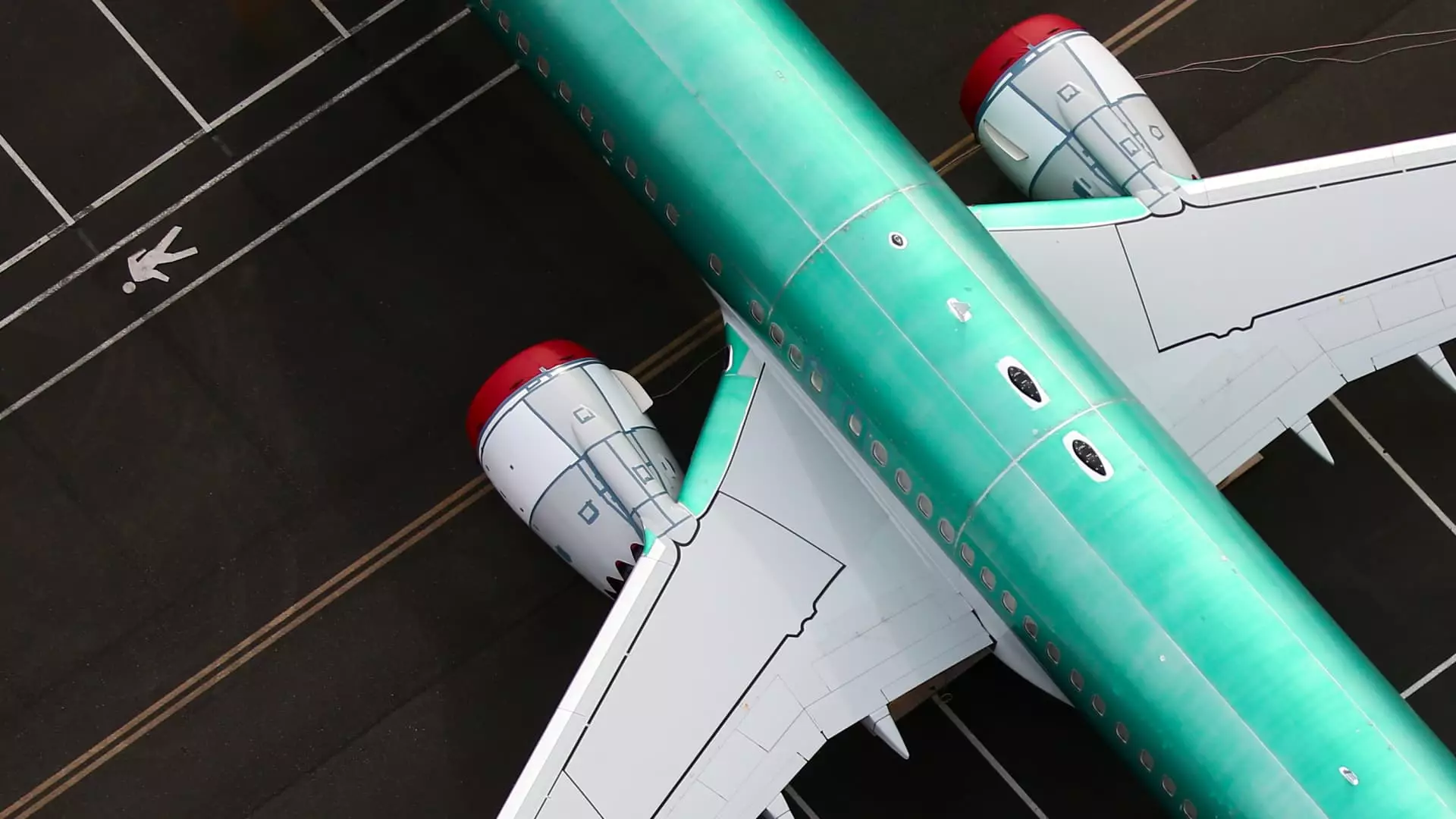Boeing has found itself in a precarious position as it enters 2024, facing significant financial hardships and operational setbacks. Once a symbol of American engineering excellence, the aerospace giant has reported staggering losses that reflect deeper issues within the company. As Boeing prepares to release its fourth-quarter financial results, analysts and stakeholders alike are closely monitoring the implications of these challenges for the company’s future.
In its latest update, Boeing announced an anticipated loss of approximately $4 billion for the fourth quarter, amounting to an estimated loss of $5.46 per share. This figure starkly contrasts with industry expectations and underscores the company’s problematic trajectory. With projected revenues around $15.2 billion, Boeing’s financial performance has consistently fallen short of market forecasts, signifying a decline in investor confidence. Furthermore, the company is grappling with a daunting cash burn, estimated at $3.5 billion during the same period, which poses serious questions about its liquidity and operational sustainability.
The challenges Boeing faces are compounded by recent incidents that have intensified scrutiny on its operational protocols. A significant safety scare in January 2024, involving a midair incident linked to a faulty door plug, has reignited concerns about product safety and quality control. This comes on the heels of the manufacturer’s attempts to recover from the reputational damage incurred following two unfortunate crashes in 2018 and 2019. Such setbacks have not only affected Boeing’s production capabilities but have also prompted increased regulatory inspections, hampering its ability to fulfill delivery schedules.
Adding to the turmoil, Boeing has experienced a protracted labor strike that spanned nearly two months, effectively halting most of its commercial aircraft production. This strike, primarily affecting workers in the Puget Sound region, resulted in a new contract agreement in November. While this development brought some relief, the ramifications of such production disruptions continue to echo throughout the company. Analysts have predicted that Boeing’s commercial airplane unit will report revenue of approximately $4.8 billion, yet they also forecast a staggering negative operating margin of almost 44%.
The troubles are not limited to its commercial operations; Boeing’s defense division is also facing severe difficulties. The company anticipates pretax charges of $1.7 billion related to its KC-46A tanker program and delays impacting the new Air Force One aircraft. The financial strain felt within the defense sector underscores broader systemic issues that Boeing must address to rebuild its reputation and financial health.
As Boeing stands at this crossroads, the path forward requires significant introspection and strategic recalibration. CEO Kelly Ortberg acknowledged the immediate challenges, yet emphasized the importance of securing financing to bolster the company’s balance sheet. While Boeing has taken steps to stabilize its operations through labor agreements and capital raises, the road ahead appears fraught with challenges. The aerospace industry, which continues to evolve at a rapid pace, will be watching closely to see whether Boeing can regain its status as a leader in aviation or if it will be overshadowed by ongoing struggles and setbacks.

